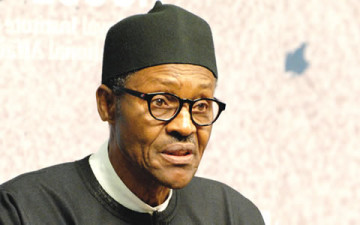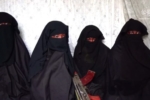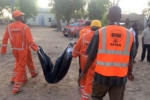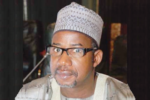Following the release of a damning report Sunday night by Human Rights Watch (HRW) alleging that Nigerian security officials and other government functionaries have raped and sexually exploited women and girls displaced by the conflict with Boko Haram, President Muhammadu Buhari monday directed the Inspector General of Police (IG), Mr Ibrahim Idris, to commence investigations into the allegations by the group.
HRW, in its report which was documented in July 2016, further revealed that the federal government was not doing enough to protect displaced women and girls and ensuring that they have access to basic rights and services, or to sanction the abusers that include camp leaders, vigilante groups, policemen and soldiers.
HRW, an international non-governmental organisation founded in the United States of America, said it documented sexual abuse, including rape and exploitation of 43 women and girls living in seven internally displaced persons (IDP) camps in Maiduguri, Borno State.
According to the report, the victims had been displaced from several Borno towns and villages, including Abadam, Bama, Baga, Damasak, Dikwa, Gamboru Ngala, Gwoza, Kukawa and Walassa.
HRW noted that in some cases, the victims had arrived in the under-served Maiduguri camps, where their movement was severely restricted after spending months in military screening camps.
Senior Nigeria researcher at HRW, Mausi Segun, said it was disgraceful and outrageous that people who should protect vulnerable women and girls were the ones attacking and abusing them.
“It is bad enough that these women and girls are not getting much-needed support for the horrific trauma they suffered at the hands of Boko Haram,” the report added.
Four of the victims were said to have told HRW that they were drugged and raped, while 37 were coerced into sex through false marriage promises and material and financial assistance.
“Many of those coerced into sex said they were abandoned if they became pregnant. They and their children have suffered discrimination, abuse, and stigmatisation from other camp residents.
“Eight of the victims said they were previously abducted by Boko Haram fighters and forced into marriage before they escaped to Maiduguri,” said the report.
A 17-year-old girl said that just over a year after she fled frequent Boko Haram attacks in Dikwa, a town 56 miles west of Maiduguri, a policeman approached her for “friendship” in the camp and later raped her.
“One day he demanded to have sex with me. I refused but he forced me. It happened just that one time, but soon I realised I was pregnant. When I informed him about my condition, he threatened to shoot and kill me if I told anyone else. So I was too afraid to report him,” the report revealed.
According to HRW, the Boko Haram conflict has led to more than 10,000 civilian deaths since 2009; the abduction of at least 2,000 people, mostly women and children and large groups of students, including from Chibok and Damasak; the forced recruitment of hundreds of men; and the displacement of about 2.5 million people in northeast Nigeria.
The also report warned that the restricted movement in the camps is contrary to Principle 14.2 of the United Nations Guiding Principles on Internal Displacement, which provides that internally displaced person have “the right to move freely in and out of camps and other settlements”.
The report further alleged that in some cases, men used their positions of authority and gifts of desperately needed food or other items to have sex with the women.
For instance, a woman in a Dalori camp said residents get only one meal a day.
She said she accepted the advances of a soldier who proposed marriage because she needed help in feeding her four children. He disappeared five months later when she told him she was pregnant.
A medical health worker in one of the camps, which has 10,000 residents, said that the number of people requiring treatment for HIV and other sexually transmitted infections has risen sharply, from about 200 cases when the camp clinic was established in 2014 to more than 500 in July 2016.
The health worker said she believed that many more women could be infected but were ashamed to go to the clinic, and were likely to be suffering in silence without treatment.
A Rapid Protection Assessment Report published in May by the Borno State Protection Sector Working Group made up of national and international aid providers, identified sexual exploitation, rape, and other sexual abuses as major concerns in nearly all 13 camps and several local communities hosting displaced persons in and around Maiduguri.
Following his visit to Nigeria in August, the United Nations special rapporteur on the human rights of internally displaced persons Chaloka Beyani said the Nigerian government has “a tendency to downplay the problem of sexual violence and abuse” of internally displaced people.
He expressed concern that this tendency “constitutes a hidden crisis of abuse with fear, stigma and cultural factors as well as impunity for perpetrators, leading to under-reporting of abuse to the relevant authorities”.
HRW said it had written to several Nigerian authorities in August requesting comments on the research findings.
The Minister of Women Affairs and Social Development, Senator Aisha Jumai Alhassan, was said to have promised in a meeting with the NGO on September 5 to investigate the allegations and then respond.
However, HRW said her response had not yet been received at the time of writing.
“Failure to respond to these widely reported abuses amounts to severe negligence or worse by Nigerian authorities,” the report said.
“Authorities should provide adequate aid in the camps, ensure freedom of movement for all displaced people, safe and confidential health care for survivors, and punish the abusers,” it added.
Reacting to the damning report, Buhari monday directed the IG to commence investigations into the allegations made by HRW.
The president, in a statement by his media aide, Mr. Garba Shehu, said he was worried and shocked by HRW’s report, which alleged sexual abuse and exploitation of women and girls at the IDP camps.
The statement said that the welfare of “these most vulnerable of Nigerian citizens had been a priority of Buhari’s government”.
“Nigerians and the international community can rest assured that the allegations raised in the HRW report are not being taken lightly,” the statement added.
It said Buhari had also instructed the governors of the affected states to immediately commence investigations into the issues raised in the report.
It assured the public that the results of the investigation would determine the next course of action for the government and define an appropriate response.
The statement added: “While the Nigerian military continues to work hard so that these unfortunate victims of Boko Haram terrorism can soon return safely to their homes, the government will do its best to ensure their protection and welfare in the temporary IDP camps.”
Thisday…..
This page has been viewed 271 times
Tags : Breaking news






























